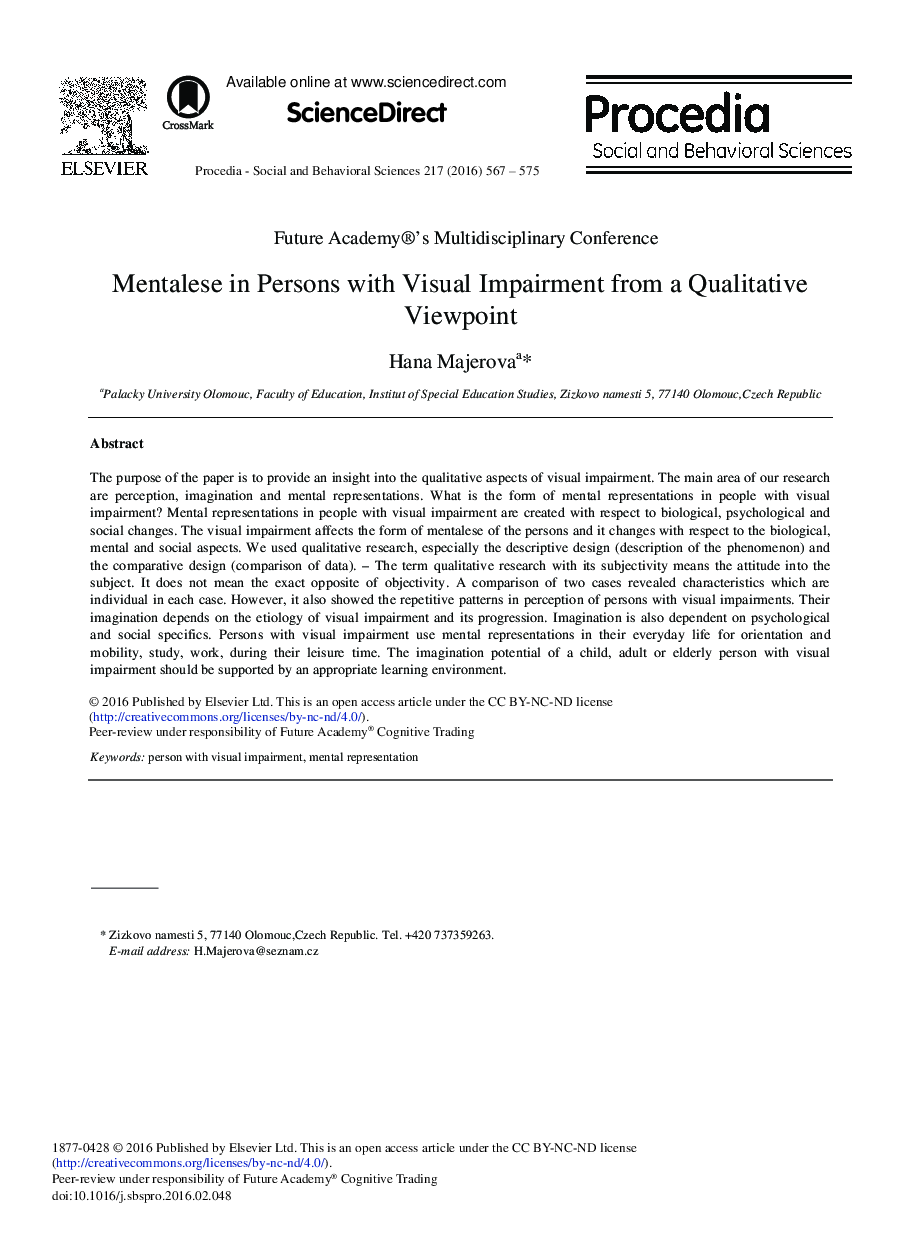| Article ID | Journal | Published Year | Pages | File Type |
|---|---|---|---|---|
| 1108626 | Procedia - Social and Behavioral Sciences | 2016 | 9 Pages |
The purpose of the paper is to provide an insight into the qualitative aspects of visual impairment. The main area of our research are perception, imagination and mental representations. What is the form of mental representations in people with visual impairment? Mental representations in people with visual impairment are created with respect to biological, psychological and social changes. The visual impairment affects the form of mentalese of the persons and it changes with respect to the biological, mental and social aspects. We used qualitative research, especially the descriptive design (description of the phenomenon) and the comparative design (comparison of data). – The term qualitative research with its subjectivity means the attitude into the subject. It does not mean the exact opposite of objectivity. A comparison of two cases revealed characteristics which are individual in each case. However, it also showed the repetitive patterns in perception of persons with visual impairments. Their imagination depends on the etiology of visual impairment and its progression. Imagination is also dependent on psychological and social specifics. Persons with visual impairment use mental representations in their everyday life for orientation and mobility, study, work, during their leisure time. The imagination potential of a child, adult or elderly person with visual impairment should be supported by an appropriate learning environment.
